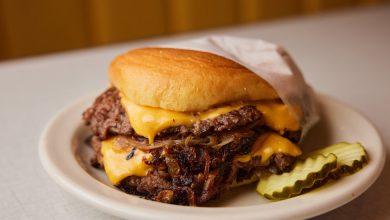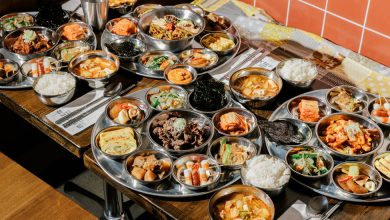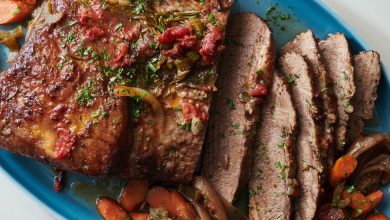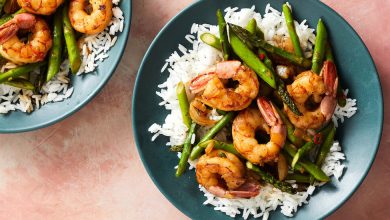The Best Black Cake, a West Indian Delight, Starts at Home
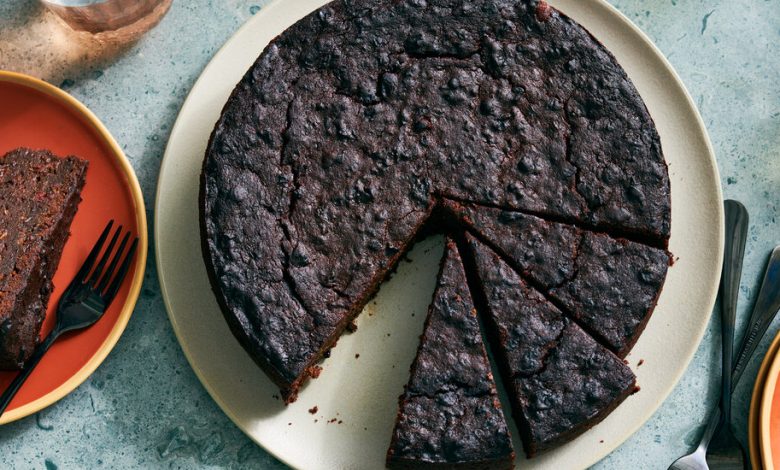
By Thanksgiving week, every surface of Marva Adams-Miller’s Brooklyn home is crowded with bags of flour and brown sugar, bottles of spices and dried fruits soaking in buckets of liquor. Ms. Adams-Miller is one of an elite group baking Caribbean black cake in late fall and the Christmas holiday season and turning cultural need into entrepreneurial opportunity. From the end of October to Christmas week, Ms. Adams-Miller normally bakes black cakes eight to 10 hours daily, outside of her full-time job working with city youth.
Ms. Adams-Miller, who lives in Mill Basin and is from Trinidad & Tobago, learned to make the cake in 1985 from her father, a pastry chef. When she moved to Brooklyn, in 1993, “word got around that I made a good black cake, and I’ve been making them yearly ever since.” She charges $60 for a nine-inch cake.
Recipe: Caribbean Black Cake
Alternatively called rum cake, fruit cake or great cake, this dessert most likely came to the Caribbean in the 18th century with English and Irish colonizers, who substituted local rum for whiskey in their traditional Christmas fruitcake. At some point, burnt sugar syrup was added, turning the cake almost black. It has been a West Indian holiday staple, as well as the go-to wedding cake, for centuries. The recipe for black cake is so storied it has even inspired a best-selling novel that has been adapted into a series on Hulu.
Its importance in Caribbean culture means that bakers are always in demand. Across ethnicity and profession, they enjoy an exalted status in the community because they keep clients close to their culture. For most of its history, the recipe wasn’t codified, so those who could make it well — usually women — were community treasures. Black cake baking is a cottage industry in the West Indies that continues among Caribbean immigrants worldwide.
Many prefer to buy the cake from an experienced baker, rather than make it themselves, as the ingredients required — currants, raisins, candied cherries, citron and prunes soaked in rum, cherry wine or brandy — can be costly. The fruits are soaked for a minimum of three weeks, although the most hard-core bakers will soak them for a year or more. The finished cake is also basted with liquor, then “cured” for several weeks.
For some bakers, like the chef Deborah Charles, who is Guyanese and lives on the Upper East Side, the cost makes selling black cakes as a large-scale business prohibitive. “I used to sell them yearly, but I learned that if I wanted to make the cakes the way I do for my family — using premium Demerara rum and sugar — it’s too expensive to sell in volume,” she said. “ I just bake for a select few clients who are willing to pay $150 for a premium cake.”
Despite the price, demand remains high throughout the Caribbean diaspora, in cities like New York, Toronto, Atlanta, Miami and Hartford, Conn. Because of this, although usually being one-person operations, sellers like Yvonne Jackson, of Hamden, Conn., can match the sales of more established outfits, like Royal Caribbean Bakery in Mount Vernon, N.Y.
Royal Caribbean sells roughly 500 black cakes every holiday season, ranging in price from $40 to $100. Ms. Jackson, who finds clients through the Caribbean community and Facebook, can make upward of 300 cakes per year at $20 per pound in the same time frame. Her average cake weighs two pounds.
For Ms. Jackson, who was born in Jamaica, baking black cake is one of multiple “hustles” outside the various day jobs — FedEx clerk, cosmetologist and notary public, to name a few over the years — that have allowed her to send money home.
For those who consider black cake a particular memory of home, only homemade will do. That’s why cottage bakers work grueling hours to fill increasing demand.
Laurie Lee, who comes from a Chinese Jamaican family with roots in the spice business, spends nearly every waking hour from October to Christmas week baking black cake in Homestead, Fla. Last year, she baked 2,000 one-pound cakes, to sell at $26 a piece. It’s all she can manage, even with her husband boxing finished cakes and other family members helping. Ms. Lee hopes to pass the business to her son, Geoffrey, a chef and restaurateur.
“For the last five years, my mom has said I should take over the business,” said Mr. Lee, who is looking into a commercial kitchen that could triple or quadruple output. “There’s a lot of potential in this business, but not out of the house.”
But Ms. Lee doesn’t want to industrialize her black cakes. Perfecting the recipe into a cake that is dense but not wet can require years of practice — and generational knowledge.
A radio broadcaster and filmmaker, Rhoma Akosua Spencer learned to make it at the small inn her mother ran in Tobago. She bakes only about 50 cakes per season but, she said, her customers in Toronto depend on her to make the confection yearly.
“There’s only one or two of us that I know of who make black cake in my area so it’s important that I continue,” Ms. Spencer said.
Ms. Adams-Miller, the Mill Basin baker, agrees that baking black cake is much more than a business.
“This is not just about making a cake,” she said. “It’s about keeping people connected to home. They’re counting on you.”
Follow New York Times Cooking on Instagram, Facebook, YouTube, TikTok and Pinterest. Get regular updates from New York Times Cooking, with recipe suggestions, cooking tips and shopping advice.
